Studies on 1 & 2 Chronicles Collection (11 vols.)
Digital Logos Edition
Overview
Studies in 1 & 2 Chronicles (11 Vols.) brings to light the different aspects of Chronicles such as the idea of restoration, how the development of the Near Eastern ideologies had an impact on monarchical ideologies and the relationships between the kings and the cultus of Jersalem.
The Chronicler as Theologian contains fifteen articles which analyze the texts of Chronicles, Ezra and Nehemiah. By being included in the historical books, the points raised in Chronicles can be misunderstood. In Chronicles and Exodus, William Johnstone presents the idea that Chronicles uses material from Samuel and Kings which gives us the version that we read today.
This title is included in the following collections
You can save when you purchase this product as part of a collection.
Logos 8 Messianic Jewish Diamo...
$2,999.99$2,999.99Logos 9 Messianic Jewish Diamo...
$2,999.99$2,999.992025 Messianic Jewish Portfoli...
$4,749.99$3,562.49Verbum 8 Portfolio Legacy Libr...
$4,749.99$4,749.99
- $4,999.99
- $7,749.99
- $11,399.99
- $23,999.99$17,999.99
- $21,749.99
- $24,999.99

- Each volume includes a list of abbreviations used
- Includes a list of references and authors cited
The subject of the collection is the theology of the Chronicler, and the studies cover an interesting range of topics. . . . These fine pieces, and the others in the volume, are a fitting gesture of affection and respect for this scholar.
—Evangelical Quarterly
- Title: Studies on 1 & 2 Chronicles collection (11 Vols.)
- Publisher: Sheffield Academic Press, T & T Clark International
- Volumes: 11
- Pages: 3,276
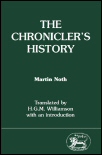
By connecting the results of the Pentateuchal criticism and how it relates to Chronicles, Noth argues that you are able to better understand how the book was written. The Chronicler’s History includes a beneficial combination of realism and common sense in the area of studying Chronicles from a literary and critical standpoint. The points that Noth raises in his book have a clarity and a viewpoint to them that make Chronicles easier to read and understand.
Martin Noth was a German scholar of the Hebrew Bible who specialized in the pre-Exilic history of the Hebrews. With Gerhard von Rad he pioneered the traditional-historical approach to biblical studies, emphasizing the role of oral traditions in the formation of the biblical texts. He died in 1968.
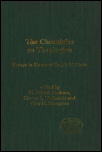
The fifteen articles in this volume, arising from work in the Chronicles–Ezra–Nehemiah Section of the Society of Biblical Literature, engage with the author's thought and message through analysis of certain critical texts or by identifying and tracing larger themes through the work. The collection follows The Chronicler as Historian and The Chronicler as Author. Like these previous volumes, this book also endeavours to show the diverse approaches employed in Chronicles scholarship.
M. Patrick Graham is Margaret A. Pitts Associate Professor of Theological Bibliography at Candler School of Theology, and Director of Pitts Theology Library, Emory University, Atlanta.
Steven McKenzie is Associate Professor of Hebrew Bible/Old Testament at Rhodes College, Memphis, Tennessee.
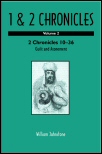
This commentary argues that Chronicles, placed as it is among the “historical books” in the traditional Old Testament of the Christian church, is much misunderstood. The Chronicler begins his work with the problem facing the whole human race in Adam —the forfeiture of the ideal of perfect oneness with God's purpose. He explores the possibility of the restoration of that ideal through Israel's place at the centre of the world of the nations. This portrayal reaches its climax in an idealized presentation of the reign of Solomon, in which all the rulers of the earth, including most famously the Queen of Sheba, bring their tribute in acknowledgment of Israel's status. As subsequent history only too clearly shows, however, that Israel itself, through unfaithfulness to Torah, has forfeited its right to possession of its land and is cast adrift among these same nations of the world. But the Chronicler's message is one of hope. By a radical transformation of the chronology of Israel's past into theological terms, the generation whom the Chronicler addresses becomes the fiftieth since Adam. It is the generation to whom the jubilee of return to the land through a perfectly enabled obedience to Torah, and thus the restoration of the primal ideal of the human race, is announced.
William Johnstone is Professor of Hebrew and Semitic Languages and former Head of the Department of Divinity with Religious Studies, University of Aberdeen, Scotland.
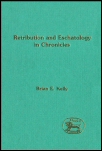
The Jews who returned from exile in Babylonia to Jerusalem and Judah faced difficult and straightened times, in which the bright hopes of the Restoration had faded. The Chronicler wrote his history partly to encourage his community to have faith in God's ancient promises to David, that better things would come to a penitent people. Although not often recognized as such, the books of Chronicles belong to the mainstream of biblical teaching on divine grace and hope, as the present study shows by analyzing its themes of reward and punishment, and its teaching on the future. It differs significantly from the interpretation given by Sara Japhet in her monograph on Chronicles of 1989 and her major new commentary of 1993.
Brian E. Kelly is Dean of Chapel, Canterbury Christ Church, University College, Canterbury.
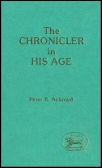
In The Chronicler in His Age, the content of the book of Chronicles characterizes a range of information and concentrates on the nature and composition of Judah and Jerusalem. Ackroyd also notes that the Chronicler had a deep concern for those who were exiled and the theology that also was a part of their lives.
By being designated as “the Chronicler,” the theory of the author being in a central point is given, but according to Ackroyd, that idea must be made accurate so that we can have a larger view of the interpretation that is a part of that period of time.
Peter R. Ackroyd attended Downing College in Cambridge and upon graduation he was an Anglican minister, university lecturer, as well as a Congregational minister. He was also a part of the Society of Old Testament Study and the Society for Biblical Literature. He died in 2005.
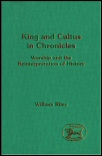
By means of a final-form consideration of the Chronicler's narrative, this study focuses attention on Chronicles' portrayal of the interactive relationship between the Jerusalem kings and the Jerusalem cultus. The Chronicler's development of ancient Near Eastern royal and temple ideologies is examined —a development that allowed the monarchical ideologies to be applied to Judah long after kingship had ceased. How the Chronicler's portrayal of the relationship between the kings and the Jerusalem cultus allowed monarchical ideologies to be applied to Judah long after kingship had ceased.
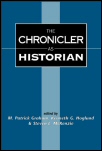
This volume of essays, dedicated to the late Raymond B. Dillard, addresses the question, “Was the Chronicler a Historian?” It includes profiles of the diverse kinds of material found in Chronicles, and assesses their value for the reconstruction of the history of ancient Israel. This collection represents the best of recent scholarship on a subject that is generating intense discussion in biblical research.
Kenneth G. Hoglund is Associate Professor in the Department of Religion at Wake Forest University, Winston-Salem, North Carolina, USA.
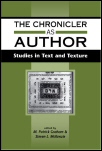
This volume represents an international collaboration focusing on the books of Chronicles as literature, looking at their literary sources, their techniques of composition, their perspectives, how they were read in antiquity, and the value of contemporary reading strategies for bringing the text to life in the present day. It opens with five “Overview” articles by Kai Peltonen, Steven McKenzie, Graeme Auld, Rodney Duke and John Wright; William Schniedewind, Gary Knoppers, Ehud Ben Zvi, Armin Siedlecki and Howard Wallace deal with “Themes”; and James Trotter, Christine Mitchell, Kirsten Nielsen, Noel Bailey, Roland Boer and Magnar Karveit address specific texts. The collection both reflects and stimulates recent and contemporary fascination with the Chronicler in biblical scholarship.
Stimulating. . . . it's generally racily written articles contribute greatly to an appreciation of a fascinating, if daunting, biblical corpus.
—The Catholic Biblical Quarterly
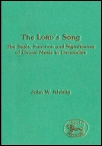
Why do the books of Chronicles regard the performance of choral music as an integral part of the sacrificial ritual at the temple, despite the lack of sanction for it in the Pentateuch? And why do they stress that it must be synchronized with the presentation of the regular public burnt offering at the temple? These and other questions are answered in this challenging new volume. After an introductory chapter defining the scope of the study as an analysis of the ritual function and theological significance of sacred song, the author examines the divine institution and royal establishment of the Levitical choir in Jerusalem. This is followed by an examination of the components of the Lord's song in terms of its contents, location, times, instruments and performers. A chapter on the function of sacred song as determined by its place within the sacrificial ritual follows, and the fifth chapter deals with its theological significance as the proclamation of the Lord's presence with his people.
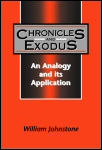
This collection of inter-related essays argues that the way in which Chronicles incorporates and develops material from Samuel-Kings offers an analogy for the way in which the final edition of Exodus was produced. Embedded within the text of Exodus there is an earlier Deuteronomistic version recoverable from the reminiscences of the exodus in Deuteronomy. This, it is suggested, is the most objective method available for recreating the literary history of Exodus and must constitute the first stage in any analysis of Exodus. Already, it produces some surprisingly radical results.
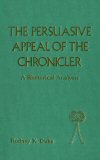
Drawing on ancient rhetorical principles, this work brings a novel approach to the exploration of the literary dynamics of the books of Chronicles. Contrary to those who have viewed the Chronicler as ploddy and dull, Duke maintains that the Chronicler understood the historiographical demands of his day. Utilizing traditions, genealogical material, speeches of authoritative characters and paradigmatic portrayal of events and characters, and moving from a cautious inductive presentation of his thesis to a more propositional form of argumentation, the Chronicler retold the story of Israel with skill and artistry.
Rodney K. Duke is professor of philosophy and religion at Appalachian State University.
Reviews
1 rating